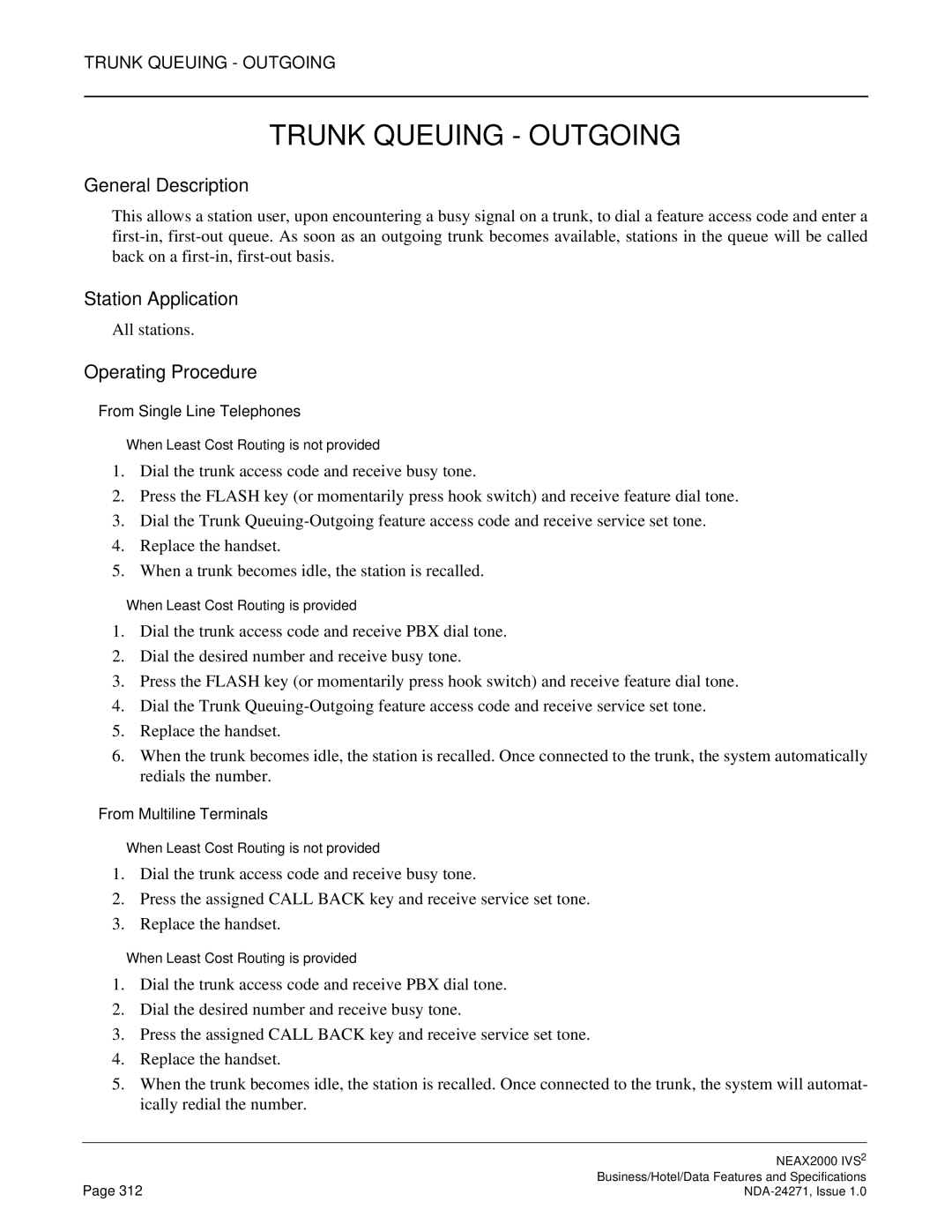
TRUNK QUEUING - OUTGOING
TRUNK QUEUING - OUTGOING
General Description
This allows a station user, upon encountering a busy signal on a trunk, to dial a feature access code and enter a
Station Application
All stations.
Operating Procedure
From Single Line Telephones
• When Least Cost Routing is not provided
1.Dial the trunk access code and receive busy tone.
2.Press the FLASH key (or momentarily press hook switch) and receive feature dial tone.
3.Dial the Trunk
4.Replace the handset.
5.When a trunk becomes idle, the station is recalled.
• When Least Cost Routing is provided
1.Dial the trunk access code and receive PBX dial tone.
2.Dial the desired number and receive busy tone.
3.Press the FLASH key (or momentarily press hook switch) and receive feature dial tone.
4.Dial the Trunk
5.Replace the handset.
6.When the trunk becomes idle, the station is recalled. Once connected to the trunk, the system automatically redials the number.
From Multiline Terminals
• When Least Cost Routing is not provided
1.Dial the trunk access code and receive busy tone.
2.Press the assigned CALL BACK key and receive service set tone.
3.Replace the handset.
• When Least Cost Routing is provided
1.Dial the trunk access code and receive PBX dial tone.
2.Dial the desired number and receive busy tone.
3.Press the assigned CALL BACK key and receive service set tone.
4.Replace the handset.
5.When the trunk becomes idle, the station is recalled. Once connected to the trunk, the system will automat- ically redial the number.
| NEAX2000 IVS2 |
Page 312 | Business/Hotel/Data Features and Specifications |
